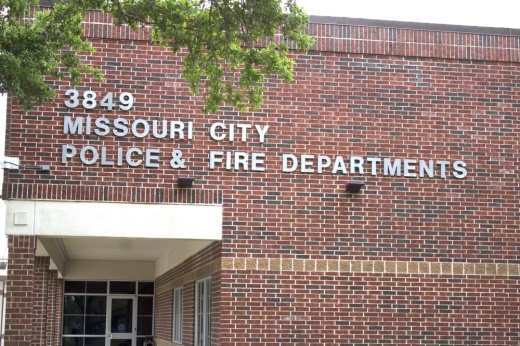About half a dozen residents spoke up alongside representatives from the Missouri City Police Officers Association during the March 20 City Council meeting to ask why the city is missing nearly 20% of its total police force.
“My old classmates would probably laugh at me for saying this, but we don’t have enough police presence in my neighborhood,” Missouri City resident Bruce Lane said during the meeting. “A lot of people thought they would never hear that from me, but that’s a fact. We used to see an officer go through once or twice every two weeks as they pass through, but now we don’t see them at all. And when I see the chief more than I see officers, I think that’s a problem.”
Jay McClellan, vice president of the Missouri City Police Officers Association and one of seven sergeants in the Missouri City Police Department, said the city has reached “crisis level” for vacant positions due to salaries that are “20% below” the regional market.
The police department is budgeted for 110 officers, according to the city’s public information archive, and is short 19 police officers and 2.5 telecommunications officers, according to Allena Portis, an assistant city manager and chief financial officer for Missouri City. The city sits anywhere from $10,000 to $18,000 below comparative police departments in terms of starting salaries, according to data provided by the Missouri City Police Officers Association.
The starting salary for police officers in Missouri City is $55,970 with a $10,000 sign-on bonus; Sugar Land offers a starting salary of $64,314, while Friendswood and Pearland offer $64,500 and $64,866, respectively, for starting officers, according to data provided by the Missouri City Police Officers Association and the city of Sugar Land. It is this discrepancy that has led to heavy attrition from the city’s police department, McClellan said.
“Our goal isn’t to be out here saying, ‘Hey we need money,’ but we’re losing people,” he said. “We’re not just losing people to other agencies—we’re losing people to other fields than law enforcement.”
Missouri City is also starved for top-quality applicants—of the 60 Texas Commission on Law Enforcement-qualified applicants during the city’s last testing cycle, nine were invited to test. Only one applicant showed up, which resulted in the test’s cancellation per civil service guidelines, Portis said.
Steps forward
To address noncompetitive pay, the city is preparing to hear the results of a competitive salary survey. The survey aims to analyze market salaries to establish a new baseline for the city to approve. The city is reviewing the survey and anticipates a completion date of April 15, Portis said. If completed by April 15, the survey would be presented to the City Council and the community by May 1.
Additionally, the city will meet for the first time with the Missouri City Police Officers Association on April 5 after its officers affirmed a meet and confer agreement in 2022. The agreement sets out the Missouri City Police Officers Association as the city officer’s sole bargaining agent—a vote that McClellan said had 95% approval from Missouri City police officers.
However, the April 5 meeting is simply to establish “ground rules of development,” Portis said. Actual bargaining will likely take place over the coming months as McClellan pointed out salary changes would likely need to take place with the adoption of the fiscal year 2023-24 city budget.
“Realistically, we don’t see anything coming up until next fiscal year,” he said.





